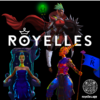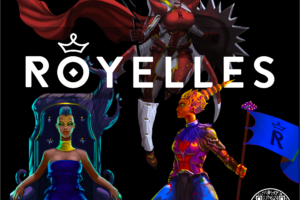
We need a new internet. This HTTP stuff is left over from the ‘90s. It’s corporate controlled in the post neutrality world, susceptible to government censorship, inaccessible to many with nearly half the world’s population still unable to connect. It increasingly needs a more streamlined makeover.
Or at least a little house cleaning. How many apps can we possibly have? How many passwords and accounts? How much content can we cram in here? What do we do with the ever growing graveyard of dead links, old MySpace accounts and cat memes, to say nothing of the emptying, generic cruise ship we call Facebook drifting steadily away from relevance? One possible answer: clean the slate. Start again. This time with something more efficient.
Imagining the Internet 2.0
By some indicators, blockchain could be the thing to supplant the internet as the de facto way we create, communicate and store data. But how will we see it widely implemented without it first becoming more user friendly to the layperson? SMBs and entrepreneurs don’t necessarily have a background in programming, nor have the skills to set their business up on the blockchain. Learning to program or hiring a team of blockchain devs isn’t always within reach to the average SMB, to say nothing of individual artisans or small nonprofits.
By contrast, consider how easy it is to start up a website. You can do it in a few hours, thanks to software platforms that make it easy. You get your URL from GoDaddy, a visual template from WordPress or SquareSpace, who also might bundle in your ecommerce space if you haven’t set that up with Shopify already. It’s because of these SaaS and PaaS third parties that we can web.
If we want to go blockchain, we’ll need a third parties like these to help facilitate it. So where are these platforms? Who’s building them?
The Deregulated Ecommerce Toolkit
Well, Eric Tippetts, for one. Tippetts expects the 2020s to see a shift to blockchain much like the 90s shift to the information superhighway and the 2010s shift to mobile. To speed things along, his company NASGO has created a toolkit called BlockBox, the goal of which is to be the ‘GoDaddy of blockchain’ so people and businesses can start building.
Through BlockBox, which Tippetts cocreated with a development team, you can find and secure a blockchain domain address, like you would with a URL, adapt your existing website for blockchain, and create a custom token. Instead of having to wrap your head around lines of code or hire a dev team, it just takes a couple minutes and a couple hundred bucks.
Tippetts describes NASGO itself as “a decentralized hosting environment that allows content to be seen in every part of the world, opening up blocked boundaries for communication and collaboration.” It also includes a platform for decentralized apps (DAPPS) that could compete with Apple and Google’s app stores.
Their website repeatedly emphasizes the deregulated nature of the product, ostensibly gearing their platform toward the “businesses, developers and consumers” of a sharing and open ecommerce.
A Platform for Public and Private Good
Amber Baldet’s company Clovyr has similar goals, but with a distinctly different tone. She wants people to use their DAPP platform to “build the systems we want to see in the world.”
Baldet left JP Morgan Chase, where she was hired to spearhead their out-of-character blockchain experiments, to found her startup. She recently testified before congress about blockchain regulation and the importance of protecting human rights and privacy early on, while the technology is still in its infancy.
She says that there needn’t be a divide between public and private interests when it comes to blockchain. “It’s very divided, the people that are building things for public chain and people that are building things for ‘permissioned’ or business enterprise kind of chains,” said Baldet in an interview with Fortune. She says that nomenclature isn’t helpful, “because it creates this kind of animosity where we’re saying that big business is on one side and the people or the proletariat are on the other side, when really it should just be about information residing where it makes sense and creating security boundaries that are logical.”
Building a Blank Canvas
In a way, the blockchain is a platform much like the internet itself, a canvas available for anybody to use, whatever their interests and intentions are.
So whatever direction the blockchain internet-nouveau of the future takes, if that’s really what we’re in for, people like Tippetts and Baldet are the architects of its structure. It’ll be up to the rest of to fill it up with content. Hopefully good content. Bring the memes, leave the corporate derelicts.
















I have been making the statement that crypto and blockchain technology simply needs the impetus of a successful application to will propel it to the forefront of public awareness.
Perhaps this is it!
Hello, i feel that i saw you visited my website
so i got here to go back the prefer?.I am attempting to
in finding things to enhance my site!I suppose its adequate
to make use of some of your ideas!!
This post is worth everyone’s attention. How can I find out more?
Great info. Lucky me I ran across your blog by chance (stumbleupon).
I’ve saved it for later!
We stumbled over here from a different web page and thought I might as well
check things out. I like what I see so i am just following you.
Look forward to finding out about your web page for a second time.